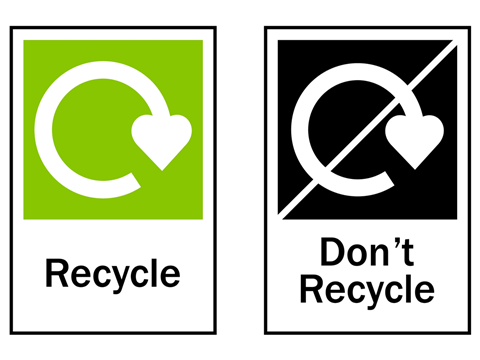
OPRL plans to adapt its Recyclability Assessment Tool to fully align with the Recyclability Assessment Methodology (RAM) for packaging EPR published by Defra, which it describes as ‘valuable clarification’ for businesses and labelling.
OPRL states that research shows the majority of consumers turn to packaging for instructions on recycling, so consistent messaging is crucial when it comes to communicating recycling information. It adds that although mandatory labelling is on hold, many brands are still choosing to label packaging products.
Its new Recyclability Assessment Tool is designed to help brands make informed choices around packaging design and reduce financial obligations under Extended Producer Responsibility for packaging (pEPR). It analyzes data including the size and weight of components, packaging type, materials, and laminations or coatings.
Jude Allan, interim MD at OPRL, said: “The arrival of eco-modulation in 2026 will introduce a financial incentive to reduce packaging or to opt for easily recyclable materials. The RAM provides a standard guide on the recyclability of different packaging materials and formats. The methodology will produce a red, amber or green output, which relates to the ease of recycling at scale. This will help businesses to make effective choices around design, as well as supporting consistent messaging to householders across the UK.”
In similar news, last year PlantSea’s packaging materials received OPRL’s ‘Recycle’ label in a reported first for seaweed-based packaging, indicating their recyclability in standard paper waste streams. PlantSea intends for its seaweed-based packaging to replace paper and card in box, bag, and stationery applications.
Last year also saw the European Commission take legal action against several Member States for failing to comply with EU law, from incorrect waste sorting labelling in France to reusable and recyclable materials ending up in landfill in Hungary. Allegedly, France infringed Articles 34-36 of the Treaty on the Functioning of the European Union by failing to address the shortcomings of its labelling requirements regarding waste sorting instructions.
If you liked this story, you might also enjoy:
The ultimate guide to the Packaging and Packaging Waste Regulation in 2024
How are the top brands progressing on packaging sustainability?
Sustainable Innovation Report 2024: Current trends and future priorities
Everything you need to know about global plastic sustainability regulation














No comments yet